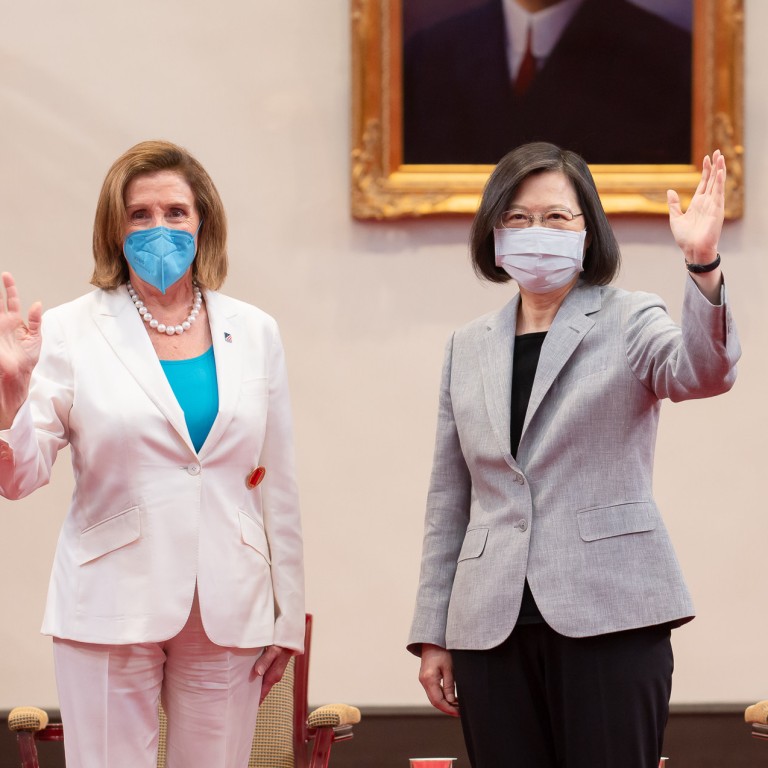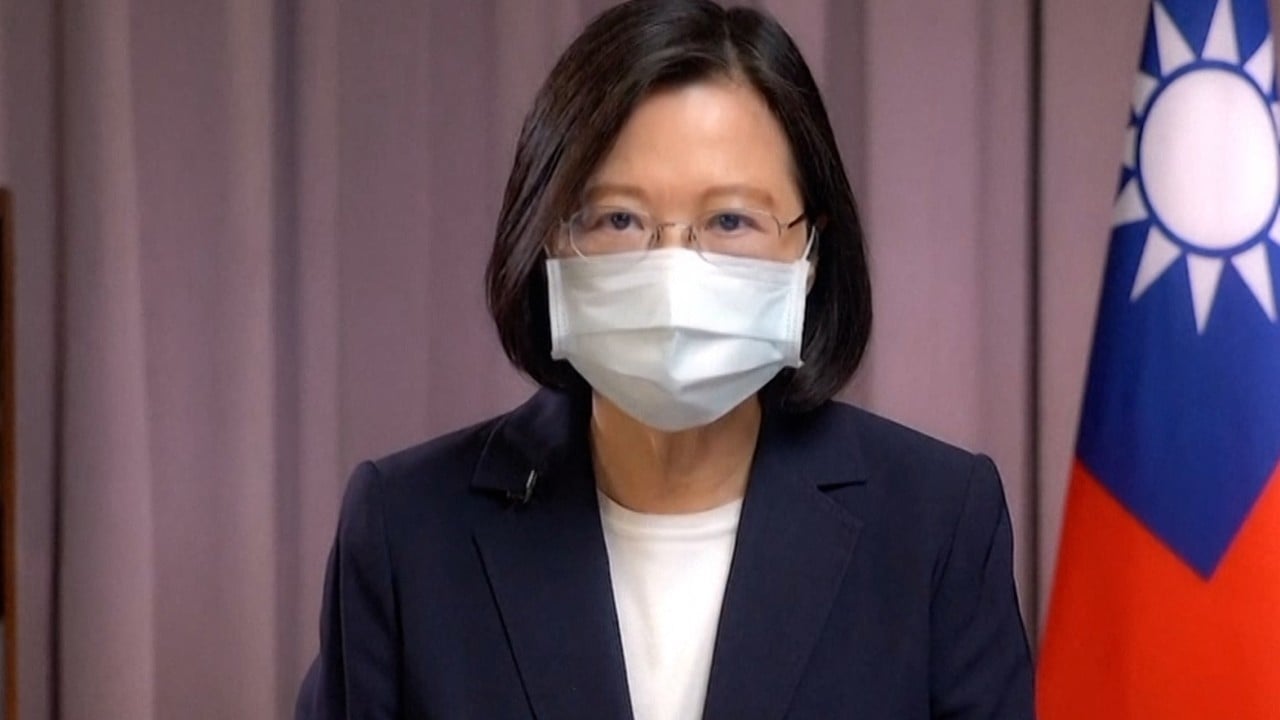
Chinese war games expected to boost support for Taiwan’s government as anti-Beijing sentiment hardens
- Political analysts say even the more mainland-friendly parties such as the KMT will be forced to change their stance to stay in tune with public opinion
- Most Taiwanese welcomed the visit by US House Speaker Nancy Pelosi and welcomed the international attention it brought despite the furious response by Beijing
They said this would also have an impact on the 2024 presidential elections, where candidates would have to be US-friendly and hostile towards Beijing to have any chance of winning.
China faces dilemma over next move in row over Pelosi’s Taiwan visit
Pelosi, second in line for the US presidency, became the highest-ranking American official to visit Taiwan in 25 years. Her whirlwind visit last week enraged Beijing, which sees the island as part of its territory and the trip as a major violation of its sovereignty.
“Actually, her visit was welcomed by the majority of the people in Taiwan and only some hardline pro-unification groups were against it,” said Wang Kung-yi, head of the Taiwan International Strategic Study Society, a Taipei’s think tank.
He said Pelosi’s visit and Beijing’s furious response had given Taiwan much-needed international attention.
He said the war games around the island had served only to increase anti-Beijing sentiment in Taiwan, helping the independence-leaning DPP uphold its status as the party fighting for the island.
Arthur Wang Zhin-sheng, secretary general of the Asia-Pacific Elite Interchange Association, a Taipei-based think tank, said there were parallels to the 1995-96 Taiwan Strait crisis, with the public supporting those who were seen to stand up to Beijing.
In 1995 the People’s Liberation Army began a series of rocket launches in response to a visit to the United States by president Lee Teng-hui. But the result was that Lee won the island’s first direct presidential election the following year by a sizeable margin.
“The KMT, which used to be a pro-unification party, would have to go with the mainstream opinion to become less Beijing-friendly and more amicable towards the US [to have a chance in the 2024 presidential poll],” Wang said.
Taiwan says PLA simulated military attack on main island
The KMT welcomed Pelosi’s visit and condemned the PLA war games, saying they would only hurt the feeling of the Taiwanese people.
Wang said the KMT had gradually moved away from its strong pro-Beijing stance to a more Taiwan-centric one in the past few years as it saw the way public opinion was shifting.
“The fallout will only help induce it to hasten the process of a political shift towards becoming a more Taiwanese or localised party,” Wang added.
He said the Taiwan People’s Party, which is led by Taipei mayor Ko Wen-je, had tried to maintain a position of being neither hostile to Beijing nor Taiwan-centric, but will have to revise its stance to maintain support.
Stephen Tan, president of Cross-Strait Policy Association, another Taipei think tank, said the more pressure Beijing put on Taiwan, the bigger the backlash from the Taiwanese public.
“Such a reaction from the public will spill over into political parties as voters expect them to stand up to the pressure from Beijing,” he said.
He said the electoral impact might be less noticeable in November’s local government elections, because voters would be more focused on bread-and-butter issues.
“But for the presidential election, voters care more about national, ideological and leadership issues,” he said.


